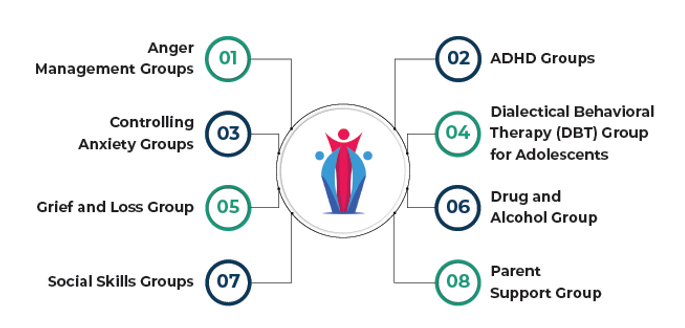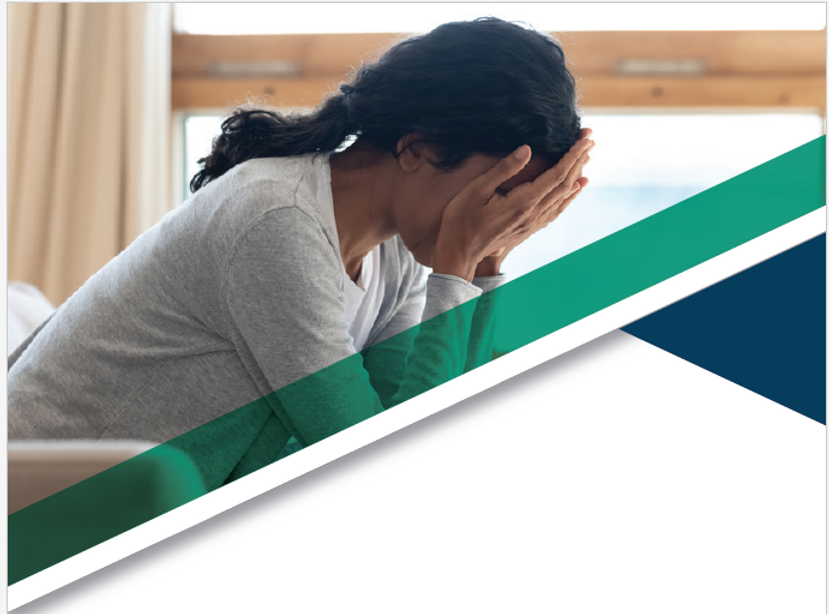OUR SERVICES
KCBS OUTPATIENT THERAPY
KCBS Outpatient program’s therapist and practitioners provide medication consultation and management to children and adolescents ranging from 6 to 18 years of age. Our clients’ parents also participate in this process and receive education on their adolescent’s medication(s) and behavioral or mental health struggles. KCBS therapists and counselors provide individual, group, and family therapy and counseling designed to provide structure and education to help youth and their families manage difficult behaviors. All forms of our therapy serve to encourage development or strengthening of alternative ways to respond to stressful situations and to communicate & interact more effectively with family members, peers, and other people in the community

KCBS OUTPATIENT SERVICE OFFERS THE FOLLOWING GROUPS THAT TYPICALLY LAST FOR 10 WEEKS:

Clients who sign up for groups are expected to attend 10 consecutive sessions to graduate from the program which may be extended an additional 10 sessions. Upon completion of the 10th session, the group therapist will provide recommendation to families for continued participation or graduation from the group. Please continue reading to learn more about groups currently offered at KCBS.
ANGER MANAGEMENT GROUPS
This topic will be discussed to assist clients who struggle with controlling themselves when upset, has tantrums, and is aggressive toward others. This group will help the client to learn more effective ways to manage their emotions, feelings and thoughts in safe and productive way.
KCBS Groups
For Children 6 to 11 years; Monday, Tuesday, and Wednesday
KCBS Groups
For Adolescents
12 to 17 years;
Thursday, Friday, and Saturday
KCBS Groups
For Community Integration Youth Group
MANAGING ANXIETY GROUPS
This group assists participants in building skills needed to negotiate school anxiety, social anxiety, and general anxiety. This group teaches participants how to manage stress more effectively, how to make their worries seem smaller, how to speak up for themselves, and how to feel better about themselves.
KCBS Groups
For Community Integration Youth Group

GRIEF AND LOSS GROUP
This group helps children work through losses they have experiences including death, moves, or divorce.
DRUG AND ALCOHOL GROUP
This group is for teens who are using alcohol or other drugs, but do not require high level of care.
CPS MODEL


SOCIAL SKILLS GROUPS
KCBS Social Skills Groups prepare children and pre-teens for success at school and home by building skills essential to managing conflicts, surviving, and responding to bullying, getting along with others, and establishing and maintain healthy boundaries.
Summer Group Schedule
Group for Children ages 6 to 11; Mondays, Tuesdays, and Wednesdays 10:00 am – 1:00 p.m & 2:00 pm-5:00 p.m
Group for Adolescents ages 12 to 17; Thursdays, Fridays and Saturdays 10:00 am – 1:00 p.m.
School Year Group Schedule
Group for Children ages 6 to 11; Mondays, Tuesdays, and Wednesdays 4:30 pm- 7:30 p.m
Group for Adolescents ages 12 to 17; Thursdays, Fridays 4:30 pm- 7:30 p.m & Saturdays 10:00 am – 1:00 p.m.
COMMUNITY INTEGRATION GROUPS
KCBS Community Integration Groups provides opportunities for youth to interact in with those in different community settings to encourage the utilization of good socials skills, good decision-making skills, and exposure to settings that promote new experiences and cultural competence.

COLLABORATIVE PROBLEM SOLVING MODEL
ADOLESCENT GROUP
The Collaborative Problem-Solving model within our Adolescent Boys program follows the principals outlined by Ross Greene, Ph. D in the book, “The Explosive Child.” Through the use of empathy, we work with patients to identify specific skills that are considered “lagging” and teach the client how to overcome these skill deficits. We have identified the following ten primary skill deficits that typically precipitate admission to our program:

Lacking in these skills can lead to anger, frustration, sadness, and anxiety as the adolescent struggles to express and interact appropriately. These increasingly intense emotions can then manifest into increased aggression towards oneself and others. Within the CPS model, individuals explore a different skill daily through therapeutic groups, role play and community integration. These skills are reviewed throughout treatment and then transitioned into the home environment through instruction and implementation plans provided to the parents and caregivers.
